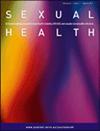Pre-exposure prophylaxis and telemedicine during coronavirus (COVID-19): a qualitative study of the experiences of health care professionals in Mexico.
IF 1.8
4区 医学
Q3 INFECTIOUS DISEASES
引用次数: 0
Abstract
Background Telemedicine, which involves utilising technologies for remote health care delivery, proved useful to continue offering certain health services during the coronavirus disease 2019 (COVID-19) lockdown. However, the extent of its effectiveness in delivering pre-exposure prophylaxis services for HIV prevention remains underexplored from the viewpoint of health care providers. Therefore, this study aimed to assess the experiences of health care professionals in Mexico who utilised telemedicine for delivering pre-exposure prophylaxis services during the COVID-19 contingency. Methods A qualitative study was performed: 15 virtual interviews with health care professionals were conducted, transcribed and coded in ATLAS.ti. Results The results indicate that telemedicine effectively mitigated COVID-19 exposure, facilitated users' access to pre-exposure prophylaxis counselling, minimised waiting times and enhanced health care professionals' perceived control during sessions. While implementing remote services, certain organisational challenges, which were somewhat latent before the pandemic, became more apparent: colleagues recognised the necessity for more formal communication channels to disseminate information effectively. Additionally, there was a recognised need for electronic patient files to streamline data-sharing processes. An optimal approach would involve a blend of face-to-face and virtual services, contingent upon the availability of essential infrastructure, well-defined implementation protocols and comprehensive training programs. Conclusions Telemedicine streamlined certain processes, garnered positive acceptance from healthcare professionals and holds promise as a valuable post-pandemic tool for improving retention among pre-exposure prophylaxis users.冠状病毒(COVID-19)期间的暴露前预防和远程医疗:对墨西哥医疗保健专业人员经验的定性研究。
背景 远程医疗涉及利用远程医疗保健服务技术,在 2019 年冠状病毒病(COVID-19)封锁期间,远程医疗在继续提供某些医疗服务方面被证明是有用的。然而,从医疗服务提供者的角度来看,远程医疗在提供艾滋病暴露前预防服务方面的有效性仍未得到充分探讨。因此,本研究旨在评估墨西哥医疗保健专业人员在 COVID-19 突发事件期间利用远程医疗提供接触前预防服务的经验。方法 开展了一项定性研究:对医疗保健专业人员进行了 15 次虚拟访谈,并在 ATLAS.ti 中进行了转录和编码。结果 研究结果表明,远程医疗有效地降低了 COVID-19 的接触风险,方便了用户获得接触前预防咨询,最大限度地缩短了等待时间,并增强了医护人员在治疗过程中的控制感知。在实施远程服务的过程中,一些在大流行之前还有些潜在的组织挑战变得更加明显:同事们认识到需要更正式的沟通渠道来有效传播信息。此外,大家还认识到有必要建立病人电子档案,以简化数据共享流程。最佳方法是将面对面服务和虚拟服务结合起来,前提是具备必要的基础设施、明确的实施规程和全面的培训计划。结论 远程医疗简化了某些流程,获得了医护人员的积极认可,有望成为大流行后提高暴露前预防使用者保留率的重要工具。
本文章由计算机程序翻译,如有差异,请以英文原文为准。
求助全文
约1分钟内获得全文
求助全文
来源期刊

Sexual health
医学-传染病学
CiteScore
2.30
自引率
12.50%
发文量
121
审稿时长
6-12 weeks
期刊介绍:
Sexual Health publishes original and significant contributions to the fields of sexual health including HIV/AIDS, Sexually transmissible infections, issues of sexuality and relevant areas of reproductive health. This journal is directed towards those working in sexual health as clinicians, public health practitioners, researchers in behavioural, clinical, laboratory, public health or social, sciences. The journal publishes peer reviewed original research, editorials, review articles, topical debates, case reports and critical correspondence.
Officially sponsored by:
The Australasian Chapter of Sexual Health Medicine of RACP
Sexual Health Society of Queensland
Sexual Health is the official journal of the International Union against Sexually Transmitted Infections (IUSTI), Asia-Pacific, and the Asia-Oceania Federation of Sexology.
 求助内容:
求助内容: 应助结果提醒方式:
应助结果提醒方式:


